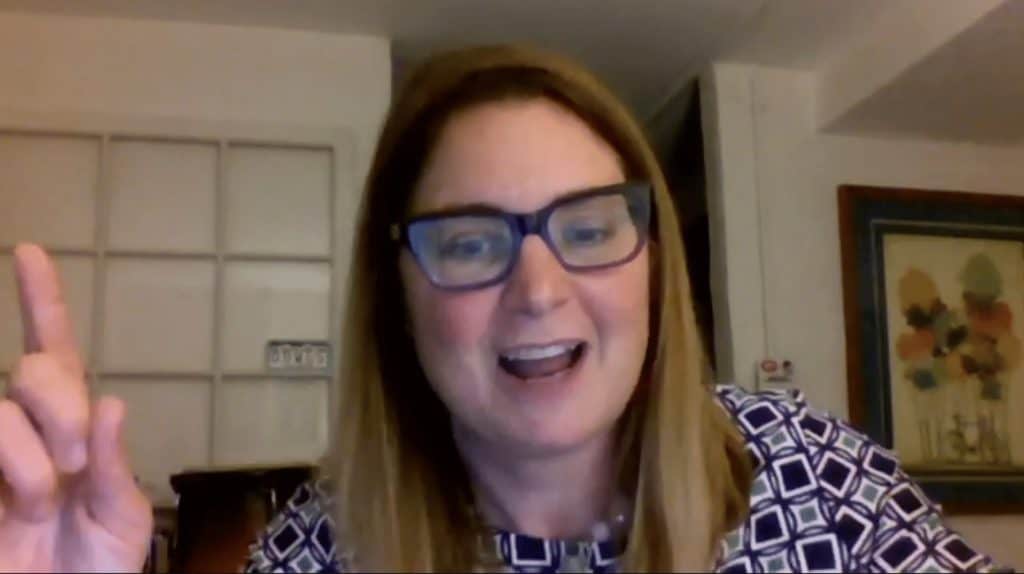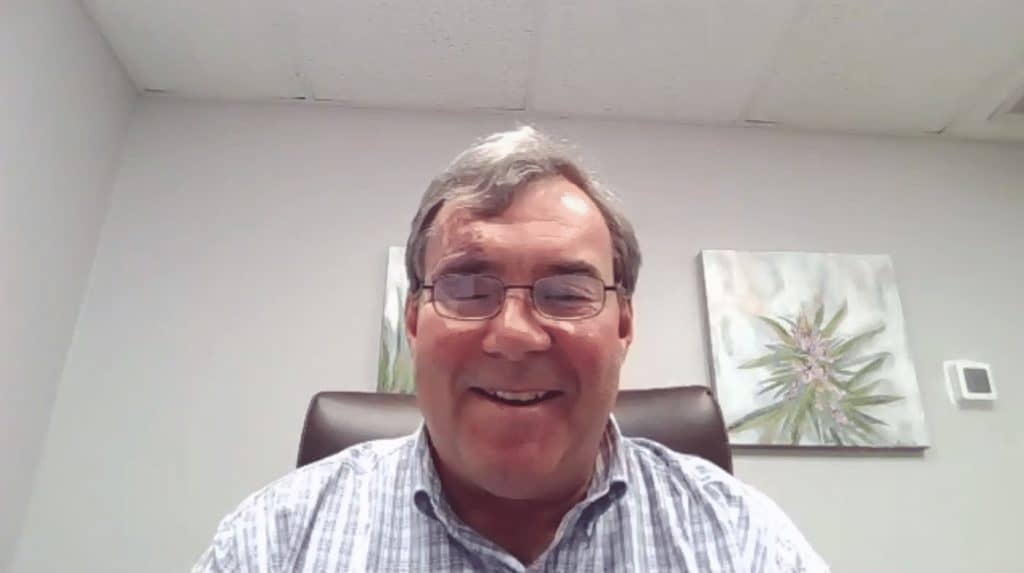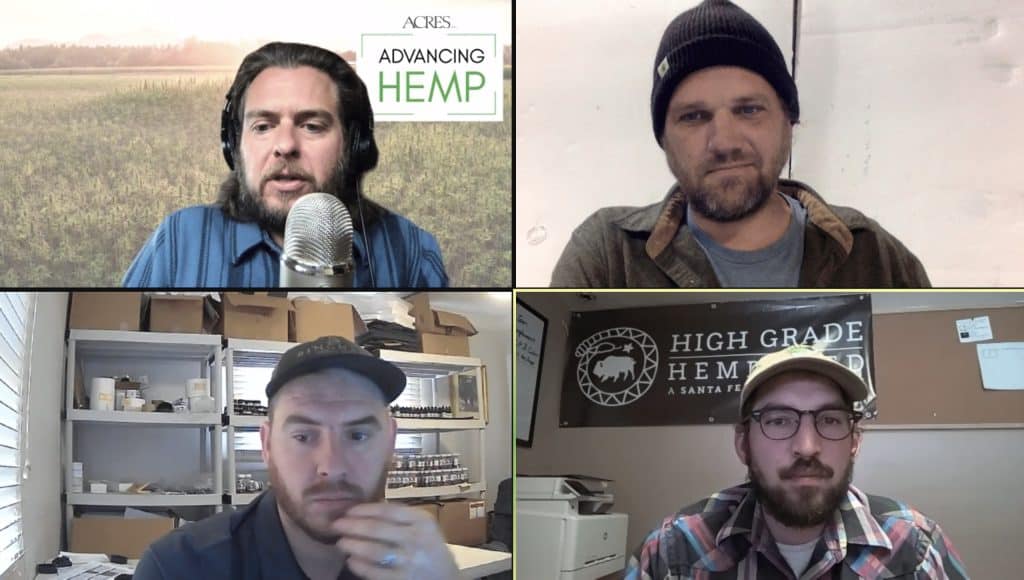By Ben Trollinger, Acres U.S.A. editor
The 2nd annual Acres U.S.A. Advancing Hemp virtual event kicked off on May 20 with a survey of the roller-coaster economic trends of the fledgling hemp market.
Kristen Nichols, a long-time Associated Press report and the editor of Hemp Industry Daily, started covering the marijuana legalization movement in 2009 and wrote about the state’s first legal hemp harvest.
During her presentation on Thursday, Nichols walked the audience through the irrational exuberance that characterized the beginning of the movement — “We’re all going to live in hemp houses and drive hemp cars!” — and into the present, where an oversupply of product coupled with a retail-quelling COVID-19 quarantine has created economic uncertainty for the crop.

However, Nichols pointed to current USDA projections that show a 10% annual growth rate for hemp over the next several years. Estimates suggest hemp could reach $1.2 billion in product sales by 2025. In other words, hemp is likely here to stay, despite some initial growing pains.
“The early days of magic profits are behind us,” she said. But “I think hemp is going to stay as a commodity.”
Hemp Seeds vs. Hemp Clones
Next up in the program was Raymond French, a plant-breeding expert who has worked for The Home Depot and, most recently, Front Range Biosciences, a hemp and cannabis seed development company based in Colorado.
French weighed the advantages of seeds versus clones within a hemp cropping system. If you’re planning on doing outdoor field production of hemp, direct seeding has its advantages. They’re more likely to develop a taproot, making them more water-efficient and resistant to wind. However, the disadvantages include a need for wider spacing that allows the farmer to scout the field for male plants.

Clones, however, will be more consistent in expression and can allow for tighter planting, which helps with weed control. That approach might not be appropriate, though, in the hot, humid and wet areas of the South, for example, because of the greater potential for bud rot and foliar diseases.
Another takeaway from French’s talk was to be careful and thorough in how you select your seeds. “There are a lot of bad actors in this industry,” he said. French also urged new hemp farmers to start small with 1-5 acres. “If you can’t walk it before lunch, it’s probably too big.”
Kempf on Plant Nutrition
John Kempf, one of the leading crop nutrition consultants in the country, batted next in the line-up. The founder of Advancing Eco Agriculture (AEA), an Ohio-based consultancy, spoke broadly about the nutritional needs of the hemp plant.
He highlighted the epigenetic variability of the plant and the potential for its environment to wield a heavy influence on the characteristics that are expressed. Using a biological approach to farming, it is possible to up-regulate and down-regulate the levels of THC and other cannabinoids such as CBD, while also developing the plant’s resistance to pests and disease. The tool for achieving these outcomes is the plant’s microbiome. The soil, he said, must act as the digestive system for the plant and help increase its photosynthetic efficiency. The higher its efficiency, the more energy the plant produces. Surplus energy is stored in the form of lipids.
“If you want high levels of cannabinoids and oils and waxes, you need microbial nutrition,” he said.
Decades of Experience from Reding
Gary Reding, a former college of Kempf’s at AEA, presented next. Reding is a plant and soil health expert whose 40-plus years of agricultural experience includes running a farm in southeast Indiana, which he transitioned from conventional to organic in 2000. In 2016, he worked as the chief cultivation officer at a large cannabis grow operation in Denver, Colorado. Since 2019, he’s worked as a consultant with a wide range of farms, including cannabis, hemp, fruits, vegetables and grains.
Reding said that the quality of the seed is the single most important factor for a hemp farmer. He encouraged growers to investigate the genetics because germination rate claims can be misleading and inaccurate. He also stressed the importance of preparing the hemp field with cover cropping and potentially some rotational grazing.
Let’s Talk About Bugs
Up next was Dr. Whitney Cranshaw, an Emeritus Professor and Extension Specialist at Colorado State University, responsible for developing pest management programs for vegetables, shade trees, turfgrass and specialty crops, like hemp. He is the author of two books, Pests of the West and Bagging Big Bugs.
Dr. Cranshaw has spent the last several years trying to catalogue and understand the insects that are attracted to hemp. He said the last time any such research was done was back to World War II.
Although there are insects who can cause significant damage to hemp crops, “a lot of what you find is beneficial — not harmful,” he said.
He shares his findings on a CSU website: hempinsects.agsci.colostate.edu/
Farmer Panel
The event ended with a farmer panel featuring Kyle Bingham (Texas), Gary Chavez (New Mexico) and Josh Gulliver (Oregon), who talked about the challenges and successes of farming hemp in their regions.

Thank You and What’s Next
A big Thank You to all of the speakers and sponsors who made this year’s Advancing Hemp the in-depth, informative event that it was! And thank you to all attendees who came and asked such insightful questions during the question-and-answer sessions.
If you missed the event but are still interested in the content, you can purchase 2021 Advancing Hemp Replay at our Eco-Ag U Online site. Review and buy the Hemp Replay here, or visit Learn.AcresUSA.com to browse many other educational offers.
Up next for Acres U.S.A. events is the 2021 On-Farm Intensive with Zimmer Ag. Learn from the biological farmer himself, Gary Zimmer, in the fields of his famed Otter Creek Organic Farm in Lone Rock, WI, this July 19-20. Learn more here.
The 3rd annual Healthy Soil Summit will be held on Aug. 25-26 this year. It will also be a virtual event, with a wide array of farming and soil experts – so be sure you don’t miss it! Learn more here.
We’re thrilled to announce that the annual Acres U.S.A. Eco-Ag Conference & Trade Show will take place in-person this Dec. 6-9! Join us in Cincinnati, OH, for three days of amazing content, and to celebrate Acres U.S.A.’s 50th anniversary! Learn more here.

